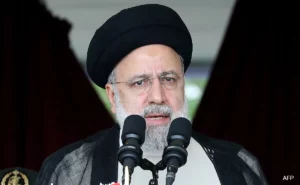Saudi Arabia Tells Pakistan to Stop Sending Beggars

Saudi Arabia, Pakistan, Umrah, begging
Saudi Arabia has recently issued a significant warning to Pakistan regarding the increasing number of Pakistani nationals entering the Kingdom under Umrah visas with the intent to beg. This situation has raised concerns among Saudi authorities about its potential negative impact on the experience of legitimate Umrah and Hajj pilgrims from Pakistan. The Saudi Ministry of Hajj has formally requested that Pakistan take immediate action to address this issue, emphasizing that failure to do so could strain the bilateral relations between the two nations and tarnish Pakistan’s reputation as a country of pilgrims.
Background of the Warning
The warning comes amid rising economic challenges in Pakistan, which has led to a noticeable increase in individuals seeking to travel abroad for begging under the guise of religious pilgrimage. Saudi officials have noted that many Pakistani nationals are misusing their Umrah visas, which are intended for spiritual journeys, to engage in begging activities upon arrival in Saudi Arabia. Reports indicate that around 90% of beggars apprehended in foreign countries are from Pakistan, highlighting a troubling trend that has caught the attention of Gulf nations.
Response from Pakistan
In response to Saudi Arabia’s concerns, Pakistan’s Ministry of Religious Affairs has announced plans to introduce an “Umrah Act.” This legislation aims to regulate travel agencies involved in organizing Umrah trips, ensuring that they operate within a legal framework and adhere to strict guidelines. Interior Minister Mohsin Naqvi has assured Saudi officials that stringent measures will be implemented against criminal networks facilitating the illegal entry of beggars into the Kingdom. The Federal Investigation Agency (FIA) has been tasked with leading this crackdown, focusing on dismantling the mafias responsible for sending beggars abroad.Additionally, there are reports that the Pakistani government is considering blocking the passports of individuals identified as habitual beggars. This measure aims to prevent them from exploiting religious visas for begging purposes and is part of a broader strategy to restore Pakistan’s image internationally.
Implications for Bilateral Relations
The ongoing issue poses a risk not only to individual pilgrims but also to the diplomatic relationship between Pakistan and Saudi Arabia. If left unaddressed, it could lead to stricter visa regulations or even a reduction in the number of Umrah visas issued to Pakistani nationals. Such actions would adversely affect those who genuinely seek to perform their religious duties without engaging in illicit activities.Saudi Arabia’s warning serves as a reminder of the delicate balance between immigration policies and maintaining national integrity while fostering religious tourism. The situation underscores the need for effective governance and oversight within Pakistan’s travel sector, particularly concerning religious pilgrimages.In conclusion, while Saudi Arabia’s request is rooted in legitimate concerns over public order and national reputation, it also highlights broader socio-economic issues within Pakistan that drive individuals towards such desperate measures. As both countries navigate this sensitive terrain, it remains crucial for Pakistan to implement effective solutions that not only address Saudi Arabia’s concerns but also support its citizens in overcoming economic hardships without resorting to begging abroad.






